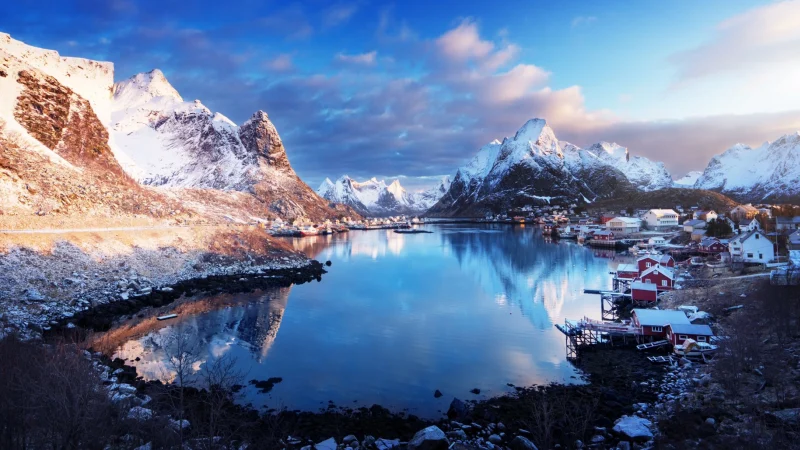Though some might think of it as the outlier of the Scandinavian countries, Norway bounced back to economic prosperity upon discovering oil in the 1960s and has never looked back. Left-leaning governments have invested the country’s wealth into public services alongside a cultural agreement to follow Jante’s Law essentially meaning everyone is equal regardless of socioeconomic or sociocultural status. This can make it a great place to visit if you want an LGBTQ+ friendly environment, but we’ll talk more about that later. When you discover Oslo, you’ll find a warm, welcoming city with plenty of fun whether you’ve come for the culture, a party or just to relax.
Norway has a reputation for being expensive, and indeed it can be very pricey, that doesn’t mean it has to be outside your price range. As part of the article I’m going to show you some of the little tricks that make this Scandi city affordable even to those on a budget. Thanks to the Schengen Agreement European, American and Canadian visitors don’t need a visa if in the country for less than 90 days. This can help to reduce your costs if you’re coming from a country which requires a Schengen Visa.
Here’s some handy advice for stopping off in Oslo.
Visit Grünerløkka for a party
Want to enjoy the nightlife?
That’s a simple one, just head over to Oslo’s coolest neighbourhood Grünerløkka. Grünerløkka is home to much of Oslo’s most unique street art making it great for Instagram photos.
Visit Frogner for relaxation
If you’re in the mood for something that’s slightly more upmarket, then you should book your accommodation in Frogner. With its impressively clean streets and quiet, relaxed cafes and bars, you’ll feel like an extra in a Scandinavian version of Made in Chelsea. Be sure to check out one of the many Kaffebrenneriet stores for great coffee.
Try Grandiosa pizza
If you’re hungry and don’t want to splash out, then you might want to try this infamous pizza. It can likely be found in every Oslo corner supermarket for less than $5, making it an easy and cheap dinner or late-night snack. You might think it’s an odd choice, but Grandiosa has become so popular in Norway that some have called it the unofficial national food of Norway! It may not be the most glamourous holiday meal you’ll ever eat, but you’ll fit right in with the locals.
Embrace Koselig
Hygge has all the headlines but Norway is similar to their Danish cousins in that they also have a unique word for the concept of cosiness, relaxation and self-care: this word is Koselig. Whether it’s enjoying a hot chocolate by Oslo’s Aker Brygge and looking out over the water or a stroll down Oslo’s main street, Karl Johan’s Gate, Koselig is a feeling you’ll want to repeat at home.
Visit one of the nearby islands
If you’re looking for a cost-effective way to look a little further afield, grab a ticket on the ferry and head to a local island just ten minutes away by boat to experience further cultural heritage and stunning Norwegian views. Hovedøya is the closest island to Oslo, but don’t let its small size fool you, there’s plenty to do while you’re there. Whether you’re looking to take a hike in the nature reservice, check out the beaches on the islands west side or soak up some culture by visiting the monastery that’s stood on Hovedøya since 1147.
Visit during Pride (June/July)
You’ll have to plan ahead as airbnbs and hotels get booked up quickly but Oslo Pride must be experienced to be believed. The entire city heads out to celebration equality and self-expression, both LGBTQ+ and otherwise. The Party in the Park takes over Oslo’s central park filled with stages for artists, market stalls and plenty of food and drink to choose from. All in all there are ten days of events from film screenings, art shows and concerts for you to check out as part of the festivities.
Alternatively, visit during Christmas
Oslo is beautiful during the Christmas period with Christmas markets and stalls brimming with delicious Norwegian food, making it perfect for a festive getaway.
Whenever you decide to visit the Norwegian capital is a good time of year. It is steeped in history, culture and a great way to spend a weekend – or more – in one of the beautiful Scandinavian countries.
Imogen Loveday is a writer for the Immigration Advice Service

